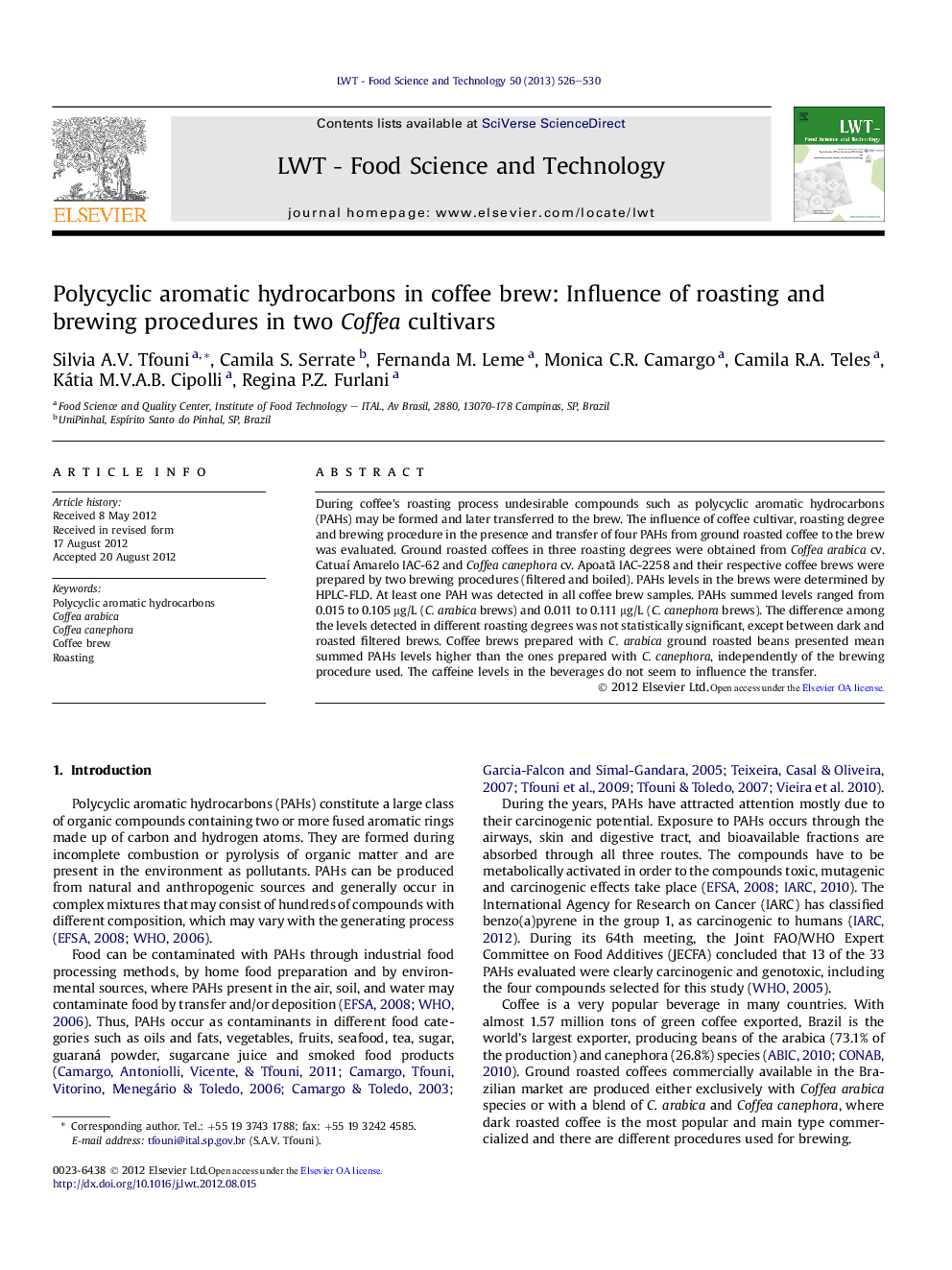| Article ID | Journal | Published Year | Pages | File Type |
|---|---|---|---|---|
| 6404884 | LWT - Food Science and Technology | 2013 | 5 Pages |
During coffee's roasting process undesirable compounds such as polycyclic aromatic hydrocarbons (PAHs) may be formed and later transferred to the brew. The influence of coffee cultivar, roasting degree and brewing procedure in the presence and transfer of four PAHs from ground roasted coffee to the brew was evaluated. Ground roasted coffees in three roasting degrees were obtained from Coffea arabica cv. Catuaà Amarelo IAC-62 and Coffea canephora cv. Apoatã IAC-2258 and their respective coffee brews were prepared by two brewing procedures (filtered and boiled). PAHs levels in the brews were determined by HPLC-FLD. At least one PAH was detected in all coffee brew samples. PAHs summed levels ranged from 0.015 to 0.105 μg/L (C. arabica brews) and 0.011 to 0.111 μg/L (C. canephora brews). The difference among the levels detected in different roasting degrees was not statistically significant, except between dark and roasted filtered brews. Coffee brews prepared with C. arabica ground roasted beans presented mean summed PAHs levels higher than the ones prepared with C. canephora, independently of the brewing procedure used. The caffeine levels in the beverages do not seem to influence the transfer.
⺠Coffee brews from different cultivars, roasting degrees and brewing procedure. ⺠PAHs levels in the brews determined by HPLC-FLD. ⺠Roasting degree had no apparent influence in PAHs levels in the brews. ⺠Coffee brews from C. arabica presented higher PAHs levels than ones from C. canephora. ⺠Caffeine levels in the brews do not seem to influence the transfer.
